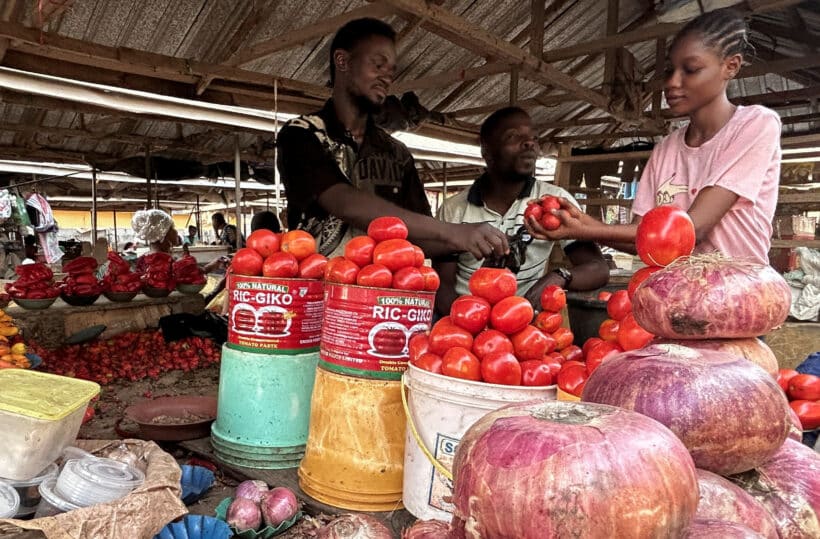The cost of living has consistently increased over the years, deepening poverty across the African continent. Globally, rising fuel, food, and other commodity prices are stoking inflation, but the African cost of living is highly vulnerable given the deep poverty in many African economies. The African Continental Free Trade Agreement is expected to improve demand and supply; however, it is fully implemented only in 54%, 20%, and 16.7% of African countries in the agricultural, industrial, and service sectors, respectively, which hampers production and supply of goods and services within the continent.
Africa is currently facing a significant cost-of-living crisis, with rising prices of necessities such as food, housing, and healthcare making it increasingly difficult for many people to afford a decent standard of living. This crisis is exacerbated by a range of factors, including high levels of inflation, inadequate infrastructure, and limited access to financial services. To address this crisis, governments, businesses, and international organizations need to work together to implement effective solutions that can help alleviate the financial burden on the continent’s population.
One of the key causes of Africa’s cost-of-living crisis is the high levels of inflation that many countries on the continent are experiencing. This inflation is driven by a variety of factors, including rising global commodity prices, currency depreciation, and supply chain disruptions. Inflation erodes the purchasing power of individuals and households, making it more difficult for them to afford essential goods and services. To address this issue, governments must take steps to control inflation through prudent fiscal and monetary policies, as well as through targeted interventions such as subsidies for necessities.
Another factor contributing to Africa’s cost-of-living crisis is the inadequate infrastructure that hinders the efficient production and distribution of goods and services. Poor transportation networks, unreliable electricity supply, and limited access to clean water all contribute to higher costs for consumers. To address this issue, governments need to prioritize investments in infrastructure development, including roads, railways, ports, and energy production facilities. By improving infrastructure, countries can reduce the cost of living for their citizens and create a more conducive environment for economic growth.
- Advertisement -
Limited access to financial services is also a significant challenge for many people in Africa, as it prevents them from saving, investing, and accessing credit. This lack of financial inclusion further exacerbates the cost-of-living crisis by forcing individuals to rely on expensive informal lending sources and limiting their ability to plan for the future. To address this issue, governments and financial institutions need to work together to expand access to financial services, including savings accounts, insurance products, and microcredit options. By increasing financial inclusion, countries can empower their citizens to improve their financial well-being and better cope with the rising cost of living.
In addition to these structural factors, the cost-of-living crisis in Africa is also exacerbated by external shocks such as natural disasters, global economic downturns, and pandemics. The COVID-19 pandemic, for example, has had a devastating impact on economies across the continent, leading to widespread job losses, income reductions, and disruptions in supply chains. To address these crises, governments need to implement targeted relief measures, including cash transfers, food assistance, and unemployment benefits. International organizations can also play a critical role in providing financial and technical support to help countries weather these shocks and build more resilient economies.
One of the key challenges in confronting Africa’s cost-of-living crisis is the need for coordinated action among stakeholders at the national, regional, and international levels. Governments must take the lead in implementing policies that address the root causes of the crisis, while businesses need to play a role in providing affordable goods and services to consumers. International organizations can provide technical assistance, financial support, and policy guidance to help countries develop and implement effective solutions. By working together, these stakeholders can create a more conducive environment for economic growth and poverty reduction in Africa.
One potential solution to Africa’s cost-of-living crisis is the promotion of sustainable agriculture and food security. Many African countries are heavily dependent on agriculture for their livelihoods, yet face challenges such as climate change, land degradation, and lack of access to modern farming techniques. By investing in sustainable agriculture practices, countries can improve food production, reduce food prices, and enhance the resilience of rural communities. Governments can support smallholder farmers through subsidies, extension services, and infrastructure investments, while businesses can invest in agribusinesses that promote sustainable practices and support local food systems.
By promoting sustainable agriculture, governments can also address the cost-of-living crisis by improving social protection programs that provide a safety net for vulnerable populations. Social protection programs such as cash transfers, food vouchers, and school feeding programs can help low-income families cope with rising prices, reduce poverty, and improve access to essential services. By expanding and strengthening these social safety nets, countries can ensure that their citizens have the means to meet their basic needs and participate fully in the economy.
- Advertisement -
Another important strategy for confronting Africa’s cost-of-living crisis is to promote financial literacy and entrepreneurship among the population.
In conclusion, as we confront this urgent crisis, it becomes essential to explore comprehensive solutions that address both the immediate needs and the underlying causes. Governments, non-governmental organizations, and the private sector must collaborate to implement policies that promote economic stability, increase food security, and support vulnerable populations.
Innovative approaches such as investing in sustainable agriculture, improving infrastructure, and enhancing social safety nets can help mitigate the impacts of rising living costs. Furthermore, empowering local communities through education and skills training can foster resilience and adaptability in the face of economic challenges.










